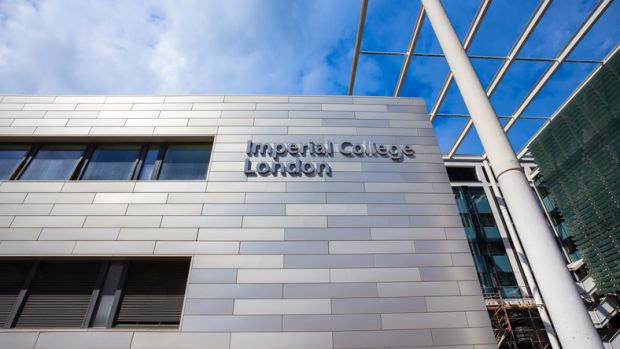
“Bonking boffin broke own lockdown rules” is the kind of headline you would only read in the UK, and the red-top tabloid press must have been rubbing its hands with glee when it realised it could roll this one out in the middle of the pandemic crisis. Of course, it refers to the resignation as a government adviser by Imperial College London epidemiologist Neil Ferguson after it was revealed he had been visited during the lockdown by a married woman he was said to be in a relationship with. More worrying for the scientific community, though, will be the fact that Professor Ferguson was being described as the person who set the rules – in reality he fed modelling on the outbreak to the UK’s Scientific Advisory Group for Emergencies. Decisions on the lockdown are ultimately the responsibility of the government and the language may only stoke fears that academics are being allowed to be viewed as those making calls about the UK’s response so they can be blamed later for any perceived mistakes.
A university in the Netherlands that opened up new vacancies only to women is facing a ruling from the country’s human rights institute after an anonymous complaint. The Dutch Institute for Human Rights wants the Eindhoven University of Technology to justify the policy it implemented last year, in which only female academics can apply for roles in the first six months, The Guardian reported. About 35 female academics, who each receive a grant of €100,000 (£87,000) to help with mentoring and research as part of the scheme, have been appointed since the programme was started last year. Frank Baaijens, the rector of the institution, said that although many staff at the university had been opposed to the approach, it had been necessary to improve gender balance among academics at the institution.
When multimillion-pound campus development projects were being carried out by universities across the UK in the past couple of decades, it was probably not envisaged that the buildings would sit idle for months on end due to a pandemic. But now it could be that lecture halls in some parts of the UK are put to use in an entirely different way: to hold criminal trials. According to The Independent, they are being considered as a means to hold trials while observing social distancing as a backlog of cases mounts up. The most senior judge in England and Wales, Lord Burnett, mentioned the option alongside other measures under consideration such as reducing the number of jurors from the normal 12.
Freshly recovered from the coronavirus, Tom Hanks has turned to lifting the spirits of students whose in-person graduations have been cancelled due to the outbreak. “America’s Dad”, as CNN referred to him, delivered a speech to students at Ohio’s Wright State University during a virtual ceremony. Mr Hanks called the graduates the “chosen ones” because of “a fate unimagined” when they began their Wright State adventures. “You started in the olden times, in a world back before the Great Pandemic of 2020. You will talk of those earlier years in your lives in just that way,” he said. “You will be enlightened in ways your degree never held in promise. You will have made it through a time of great sacrifice and great need. No one will be more fresh to the task of restarting our normalcy than you − our chosen ones.”
Students at the University of Oxford have voted in a policy that calls for academics to include “trigger warnings” at the top of reading lists to give advance notice of potentially distressing material. The policy is aimed at protecting transgender, non-binary, disabled, working-class and female students from hatred at university, the union says. It also says students should not be required to attend any lectures, tutorials or seminars, nor should they have to sit exams, that involve “hate speech” against a particular group and calls for academics to be issued with guidance on how to consider what articles to include on their syllabus. Perhaps unsurprisingly, The Telegraph reported that the motion has provoked backlash among Oxford academics who said it is an attempt to censor free speech. Renowned evolutionary biologist Richard Dawkins said that students who do not understand what university is for should leave, while moral philosopher Jeff McMahan said the motion was a “grave mistake”.
Princeton University has reached a significant, albeit overdue, milestone, as it named its first black valedictorian in the school’s 274-year history. In a statement, the university announced that Nicholas Johnson, a Canadian student majoring in operations research and financial engineering, would be the Class of 2020’s valedictorian. Mr Johnson told CNN that “it feels empowering. Being Princeton’s first black valedictorian holds special significance to me, particularly given Princeton’s historical ties to the institution of slavery.” Although the coronavirus pandemic has led to the cancellation of the university’s in-person graduation ceremony, it will hold a virtual one on 31 May and has said it will hold an in-person commencement for the class in spring 2021.
Register to continue
Why register?
- Registration is free and only takes a moment
- Once registered, you can read 3 articles a month
- Sign up for our newsletter
Subscribe
Or subscribe for unlimited access to:
- Unlimited access to news, views, insights & reviews
- Digital editions
- Digital access to THE’s university and college rankings analysis
Already registered or a current subscriber? Login

